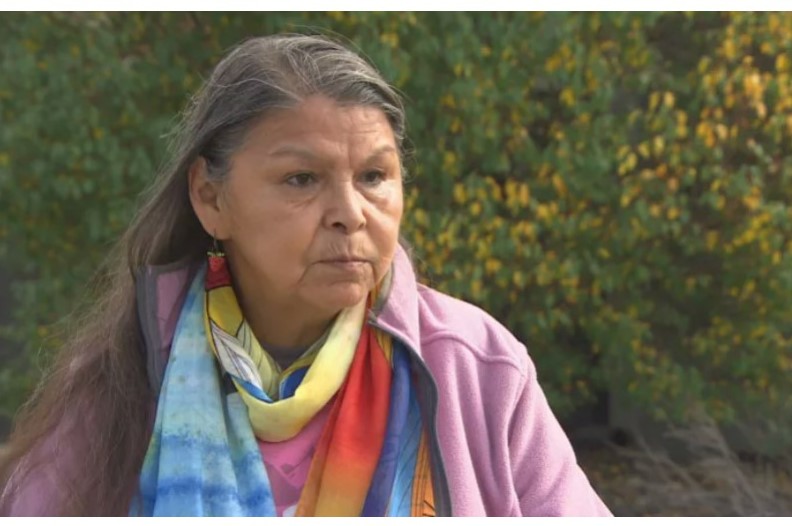WINNIPEG (CANADA)
CBC (Canadian Broadcasting Corporation) [Toronto, Canada]
September 25, 2021
[Photo above: Gerry Shingoose is a residential school survivor who lives in Winnipeg. She was forced to attend the Muscowequan Residential School in Saskatchewan from 1962 to 1971. (Marouane Refak / Radio-Canada)]
Gerry Shingoose says the Catholic Church still needs to be held accountable for its involvement
One residential school survivor in Manitoba says the public apology for residential schools made by the Canadian Conference of Catholic Bishops this week is too little, too late.
“Today, their apology means nothing to me. It’s not sincere, it’s not genuine,” Gerry Shingoose, who was forced to attend the Muscowequan Residential School in Saskatchewan from 1962 to 1971, said in Winnipeg on Saturday.
“They need to be held accountable.”
The sentiment mirrors that expressed by the Assembly of First Nations in the hours after the bishops issued their statement on Friday.
National Chief RoseAnne Archibald expressed mixed feelings about the apology and said she was disappointed the statement didn’t invite the Pope to Canada to offer an apology of his own.
Shingoose agreed and said survivors like her should have been invited to hear the apology be read, instead of just reading about it on the news.
She said she also wants to see the church investigated and held criminally responsible for abuse it inflicted within the residential school system.
‘An important step’
André Carrier, a vice-president at the Manitoba Métis Federation, agreed that Catholic organizations have had many years to apologize for their involvement in the residential school system.
But he said it’s never too late for an apology.
“It’s an important step, a strong position or foundation towards reconciliation, and to ensure that we move forward in this terrible part of our history where the church [has] not protected us and [has] caused a lot of harm in our families,” Carrier said.
He said now it’s time for the church to acknowledge the intergenerational harm inflicted by residential schools and recognize “the harm that they have done by not admitting to the atrocities that have occurred.”
“The harm that is done is so entrenched in our community and our families,” Carrier said.
“But I truly believe the first step is an apology. And the next step will be to ensure that we provide resources to deal with the pain and suffering that we have gone through for the last several decades.”
With files from Zoé Le Gallic-Massie

